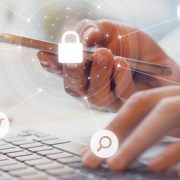If It’s Online, It can Be Hacked!
It is becoming very hard to keep people safe on the internet these days since almost everything is online — from surveillance cameras to implanted medical devices to common household appliances.
Recently, CIO published an article called “The Internet of Things Could Encroach on Personal Privacy”. It discusses the White House’s concern that the sensors and smart meters being installed in many homes today can also be used by criminals to spy on potential victims.
Think about it? How useful would it be for a criminal to know when you’re home, when you go to sleep, what part of the house you spend the most time in, security systems in place, and when you’re not home at all?
The fact is: if it’s online it can be hacked. Granted, it may not be easy to do, but it is possible and the criminal element has some of the best technical minds on their payroll. Want proof? Just look at recent headlines announcing the latest hacks on business and government systems.
The internet is one of the greatest inventions ever created, but as with most things, it can be used for good as well as evil. Many physical crimes have their beginnings on the internet, so be careful of the information you reveal online.
What can you do to protect yourself? Here are 12 suggestions:
- Take physical security very seriously. Make sure your homes and businesses are adequately protected with proper locks, cameras, alarms, etc.
- Don’t post schedules and vacation times on social media. Social media sites are a rich source of information for cyber-criminals. People who post their comings and goings on these sites make it easy for criminals to target them.
- Be wary of letting strangers into your home. Service personnel that show up unexpectedly may not be who they say they are. Make sure unexpected visits are legitimate by directly calling service providers on the phone before you let them into your home.
- Many homes and businesses use wireless networks today. Make sure yours is secure. Criminals can hack into, monitor, and steal information through unsecure wireless connections.
- Be extremely cautious about the websites you visit, especially when they ask for personal and/or financial information. Only visit trusted websites.
- Don’t fall for email scams asking you to reveal passwords. Legitimate companies wouldn’t do that and emails that do are a sure sign of a scam.
- Be very cautious about clicking on any links in emails from people you don’t know. Email is one of the most popular ways malware is delivered to targets. If you do click on an infected link, immediately disconnect your workstation from the internet and network, then call your IT Service Provider.
- Computer operating systems should be supported and up-to-date (no Windows XP machines!). All systems should be protected with up-to-date anti-virus and anti-malware software.
- Business systems should be monitored and maintained by a Managed IT Services company to ensure that issues are immediately dealt with. Unattended issues can turn critical in short order.
- Check your bank and credit card statements frequently and report any suspicious transactions.
- It’s a good idea to periodically check your credit. There are numerous services that you can take advantage of; some are even free. Identity theft is big business so report suspicious activity immediately.
- When new appliances and devices are being installed in your home, make sure you know and understand whether they are remotely monitored, what data is collected, who is collecting it, and how that information will be used and protected.
Always be security conscience. The good thing about the internet is that you have access to enormous amounts of information. The FBI’s Cyber Crime website and Department of Homeland Security site discuss many topics and gives advice on how to protect yourself and your family
And…
Don’t forget to visit our blog, The Letter ‘X’ where we discuss many security issues. Here’s a short list of past articles that may be of interest:










